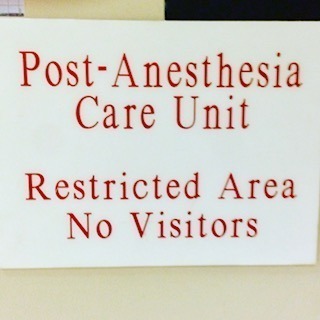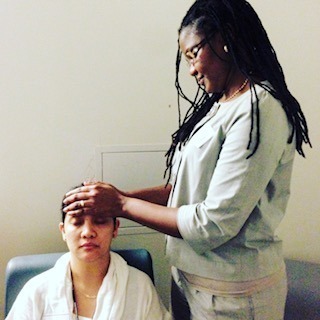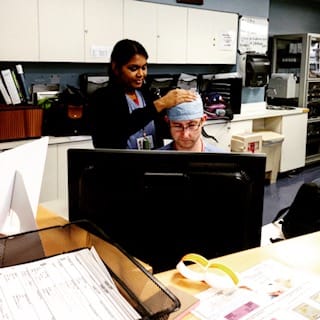Reiki in Hospitals: an Update
What’s the current state of Reiki in hospitals? What’s the future?
Given the disarray that is U.S. health care — medical care is the third leading killer of Americans, behind only heart disease and cancer, and staff burnout is rampant– the need for Reiki practice in hospital has never been greater. But how many hospitals offer Reiki to patients and staff?
Without a mandatory registry for Reiki programs, there’s no way to give a definitive answer, but here’s an overview of the situation, with perspective.
Reiki in hospitals: where?
 An ever-changing number of hospitals offer Reiki services, including these prominent academic medical centers:
An ever-changing number of hospitals offer Reiki services, including these prominent academic medical centers:- Memorial Sloan Kettering Cancer Center
- NY-Presbyterian Hospital/Columbia
- Yale New Haven Hospital
- Dana-Farber/Harvard Cancer Center
- Abramson Cancer Center of the University of Pennsylvania
- Johns Hopkins Hospital and Health System
- George Washington University Hospital
- M.D. Anderson Cancer Center
- California Pacific Medical Center.
Reiki in hospitals, the back story
It’s impossible to tell how much and where Reiki in hospitals is happening for many reasons, starting with the lack of a registry. Also, Reiki programs come and go at the mercy of funding and staff changes. And Reiki is not necessarily offered through dedicated Reiki programs or even as part of an integrative medicine* department.Reiki in hospitals is sometimes a matter of Reiki-trained nurses lingering as they touch patients during routine care. The nurses might have been trained in hospital programs, or they may have sought training on their own.
But nurses are comforting patients with moments of Reiki touch only or at most very modified treatment. Floor nurses are overworked and don’t have time to give full Reiki treatments while on the floor.
When full Reiki treatment is offered in hospital, it is generally by volunteers; hospital Reiki practitioners are rarely paid.
Reiki in hospitals: education
Some hospitals offer Reiki training to staff and some offer training to the community as well. Hospitals introducing Reiki to the public brings Reiki mainstream visibility and lends credibility to a practice that is often misunderstood and undervalued.That sounds like a good thing, doesn’t it?
In actuality, it’s more of a mixed blessing. Reiki practice is so different from hospital medicine that hospitals themselves are an environment in which the practice is largely misunderstood. Hospital staff typically squeeze the practice into the conventional medical paradigm and rarely look deeper.
That doesn’t pose problems for Reiki treatment because people can offer treatment effectively without understanding Reiki practice. But it does pose problems for Reiki training. Even a skilled teacher cannot impart something she doesn’t deeply understand. Hospitals often rely on staff members who have become Reiki masters. That makes sense in that staff know the hospital’s culture and systems.
However, licensed healthcare providers embedded in the conventional medical paradigm are more likely to take faster master training. They are also less likely to commit to daily Reiki self practice, which is the foundation of a Reiki practitioner’s growth.
 Who can blame hospitals for relying on staff in this way? Reiki
practice looks like what nurses already know — comfort touch — and is
absurdly simple compared to nursing skills. When Reiki is not presented
in the context of spiritual practice, how would an academically trained
professional focused on fixing problems know to look deeper, to simply
practice and wait?
Who can blame hospitals for relying on staff in this way? Reiki
practice looks like what nurses already know — comfort touch — and is
absurdly simple compared to nursing skills. When Reiki is not presented
in the context of spiritual practice, how would an academically trained
professional focused on fixing problems know to look deeper, to simply
practice and wait?And so hospital training programs tend to be inadequate, focusing on (often specious) information, lasting too few hours, and including little or no hands-on practice or follow-up.
And most important, hospital classes tend to skim over daily self practice or skip it completely because self care is not yet a value in conventional health care. So while staff and the public might trust hospital-based Reiki training, what is the quality of the education offered? How many participants walk out with a certificate but don’t practice in their own lives?
Patients are willing to pay
Reiki in hospitals is usually offered free of charge to patients through volunteers in hospital Reiki programs or the hospital’s integrative medicine department.But according to a study recently published in the Journal of Alternative and Complementary Medicine (available for free until April 28, 2017), hospital patients are willing to pay cash for services such as Reiki treatment.
That kind of research — inquiring into patient preferences — can bring Reiki practice to the attention of healthcare decision makers, those who direct the business of health care.
And U.S. health care is a business.
Four of the New York City hospitals where I started Reiki programs — Beth Israel Medical Center, St. Luke’s Hospital, Roosevelt Hospital, and St. Vincent’s Hospital — have gone bankrupt or been folded into a larger healthcare organization without a track record for integrative care.
Major integrative medicine initiatives disappear
Four of the most influential, visionary integrative medicine initiatives — ones that have substantially advanced integrative medicine/whole person care — have closed: Penny George Institute,** Bravewell Collaborative, Continuum Health, and now the Samueli Institute, headed by Wayne Jonas, a long time and well respected pioneer in this field. Jonas was the head of the NIH’s Office of Alternative Medicine, which over time morphed into the National Center for Complementary and Integrative Health (NCCIH).One reason Samueli is closing is because some of the work it once did is now being done in the VA and the DoD, both single payer systems. That success is unlikely to affect the complicated public healthcare industry.
Another reason is that research grants are tighter than ever. Samueli is known for its research, publishing more than 700 peer-reviews papers in 15 years.
The future of Reiki in hospitals
Hospital medicine is evidence-based medicine, i.e. based on research data. What is the implication for integrative medicine research when
Samueli, a respected research center with a proven track record, has a
hard time getting funding? Of all the practices offered in hospitals,
Reiki is the least researched, and with funding harder to come by, that
is not likely to change.
What is the implication for integrative medicine research when
Samueli, a respected research center with a proven track record, has a
hard time getting funding? Of all the practices offered in hospitals,
Reiki is the least researched, and with funding harder to come by, that
is not likely to change.But the paucity of Reiki research is unlikely to effect the presence of Reiki in hospitals. Research has never been the basis for hospital Reiki programs. In fact, Reiki is practiced in hospitals despite the lack of research.
Why? Because the benefits to patients and staff are obvious to decision-makers who take the time to look.
Getting their attention is the challenge, and it’s one that needs to be addressed within the hospital. But there is something valuable you can do to support Reiki in health care.
How you can help
When was the last time your doctor prescribed Reiki for you, in or out of hospital? Would you like that to change?Then start educating your doctors about Reiki practice.
Speak to your doctors about Reiki practice. Your insurance might restrict your ability to vote with your feet — to only choose only doctors who are integrative — but you can educate your doctors, nurses and other licensed caregivers. Your voice can help change health care. I know, because patient voices are what led to me being asked to create the first in-hospital Reiki program at Beth Israel Medical Center in the 1990s.
Here is an important tip: don’t try to persuade your doctor or explain what Reiki is. That won’t work.
Instead, be content to simply share the difference you notice when you receive a Reiki treatment or practice self Reiki. For example, you could say, “I noticed my headaches are less frequent and less intense when I practice Reiki every day.” Or “I’m sleeping better since I started receiving weekly Reiki treatment.”
Doctors are interested in results. They especially like results that don’t pose risks, involve medication, or interfere with conventional medical care.
You can get more ideas how to educate your doctors by reading Reiki stories written by people like you.
If you aren’t a professional, you can share the name of a credible Reiki professional so your doctor has a referral if needed. Even doctors who value integrative care usually don’t have time to discuss Reiki with their patients. We need to make it easier for them.
Medical Reiki
Are you wondering what difference Reiki practice really makes in your health care? Are you a professional who knows that understanding Medical Reiki will help you grow your business and help more people?Please consider the Reiki and Medicine Intensive in New York City July 21-23.
Participants have valued the clarity of the presentation, the presentation of science, the research overview, and the community of diverse but like-minded practitioners. Come willing to take a fresh look and prepared to stretch and think.
*Integrative medicine offers whole person medicine, engages the patient as a healing partner, and includes complementary healing practices.
**While there is still a Penny George Institute for Health and Healing, the founders have reallocated funding to community-based programs and the research department and many integrative practitioners were let go.
Source: https://reikiinmedicine.org/clinical-practice/reiki-in-hospitals-an-update/